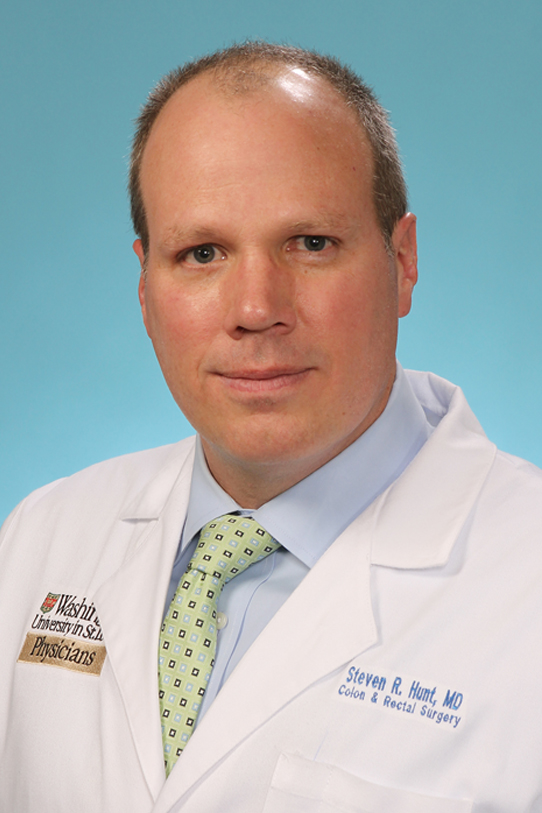Washington University Colorectal Surgeons answer patient questions regarding ulcerative colitis.

Ulcerative colitis (UC) is a chronic inflammatory disease that can affect the entire colon and rectum. The inner lining of the intestine (called mucosa) becomes inflamed, and small sores or ulcers form. This inflammation often causes pain, cramping and diarrhea, which can sometimes be bloody.
UC is an abnormal response to the body’s immune system. Normally, the immune system protects the body from infection. In patients with ulcerative colitis, the immune system launches an attack on the lining of the colon and rectum, producing inflammation and ulcers. The exact cause of UC is unknown, but it is not contagious. Men and women are equally affected, and people of all ages can develop UC. A family history of UC slightly increases the risk of disease.
Some patients may have more mild symptoms, while others will have more severe symptoms. Patients often have crampy abdominal pain and diarrhea, which can be bloody. Loss of appetite, fatigue and weight loss are also common.
Physicians make a diagnosis of UC after taking a careful history, performing a physical exam and ordering a series of tests. Patients will generally have a flexible sigmoidoscopy or colonoscopy, during which biopsies can be taken. This helps to determine the severity and extent of UC, as well as rule out other diseases.
Medical treatment of UC is generally the first line Medical treatment of UC is generally the first line of treatment. The goal of treatment is to reduce inflammation and improve the patient’s symptoms and quality of life. There are several different types of medication that can be used to treat UC, and these are often prescribed and managed by a gastroenterologist.
Surgery is generally reserved for when medical therapy is not enough. Patients who have ongoing symptoms despite medical management are candidates for surgery. Patients who develop severe bleeding or infection (called toxic colitis) may require emergency surgery. Another reason for surgery is the development of cancer or precancerous lesions that can be found during colonoscopy. The entire colon and rectum can be removed surgically, and since UC only affects the colon and rectum, the disease can be cured.
There are two main surgical options for managing UC. The first involves removal of the entire colon and rectum with creation of a permanent ileostomy (an opening in the abdominal wall through which waste is eliminated). This is called a total proctocolectomy with end ileostomy. The second option removes the entire colon and rectum, but saves the anus and sphincter muscles. The end of the small intestine is used to create a “new” rectum (j-pouch) which is attached to the anus. These patients require a temporary ileostomy that allows their j-pouch to heal before their ileostomy is reversed and they can pass stool through their anus again. This is called a total proctocolectomy with j-pouch. This surgery is generally performed in multiple stages.
Patients who have had a total proctocolectomy with j-pouch are at risk for developing inflammation within their j-pouch. Symptoms of pouchitis include increased fecal urgency and Patients who have had a total proctocolectomy with j-pouch are at risk for developing inflammation within their j-pouch. Symptoms of pouchitis include increased fecal urgency and frequency, pain, and bloody diarrhea. Pouchitis is often diagnosed by physical exam or flexible endoscopy, during which biopsies can be taken. Up to half of patients with a j-pouch may develop pouchitis, but this often responds to antibiotic therapy.





